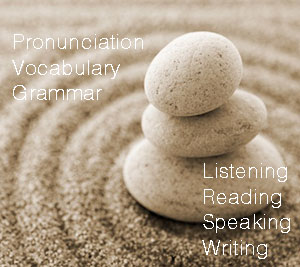 99% of my students often lack English vocabulary to communicate. They either can’t drag a necessary word out of “passive memory” or just don’t know it at all. We work together, enhancing their lexis, and I effectuate this process by systematic vocabulary testing. Every now and then, students still forget different words, so we explore efficient strategies how to memorise difficult ones. The tricky thing is that people are different, and their perception type varies. There can be visual, auditory and kinaesthetic learners. When students discover their learning style, they can benefit from some simple, but powerful techniques to build up their English vocabulary.
99% of my students often lack English vocabulary to communicate. They either can’t drag a necessary word out of “passive memory” or just don’t know it at all. We work together, enhancing their lexis, and I effectuate this process by systematic vocabulary testing. Every now and then, students still forget different words, so we explore efficient strategies how to memorise difficult ones. The tricky thing is that people are different, and their perception type varies. There can be visual, auditory and kinaesthetic learners. When students discover their learning style, they can benefit from some simple, but powerful techniques to build up their English vocabulary.
1 Write collocations
You need to acquire a special vocabulary note book and put down an unknown word, its transcription, translation and, most importantly, a couple of phrases or collocations with it. I prefer to use Oxford dictionary to fish for phrases. Words should be learnt not isolated, but as collocations so as to activate them in your speech. Then leaf over your vocabulary at home, cover the column of Russian translation trying to remember the meaning of English phrases and then vice versa. Some people prefer to use double-sided cards, that is another good technique. Also, Anki application is a really effective tool to check how well you memorised the words.
2 Pronounce
Involve their auditory perception by pronouncing an English collocation, its translation and then spelling the unknown word. It is essential to focus all your attention on the word and its meaning and not let your thoughts wander. Use transcriptions to ensure that you learn correct pronunciation.
3 Create associations
While revising, you will surely encounter “difficult” words. To remember such a word, you can produce an association and imagine a picture. Take, for example, the word “gorgeous”. I have an association with “gorge” and imagine a picture of an antique statue of a woman with a beautiful neck. Then I connect my kinaesthetic perception and feel that the statue is smooth and cold. Finally, I connect my image with the word “gorgeous”.
4 Register your emotions
Let’s connect words and emotions. Word’s meaning can arouse an emotion of sadness, annoyance, joy, repulsion, admiration. Many words have a positive or a negative connotation (shades of meaning). Pay attention to your emotion and register it. Later, when you come across that word, your emotion will serve as a key to unlock the word’s meaning.
5 Practice
Use words in your speech. Create some examples using the pronoun I. That’s a simple way to activate your new vocabulary, informing your subconsciousness that it should keep the word in your active memory rather than archive it. Kato Lomb, a famous hungarian interpreter and polyglot who could speak 16 languages, recommended this trick to learn idioms – just create a phrase with the pronoun I. You can certainly apply it not just for idioms, but for any tricky words.
6 Read books
Choose an interesting book in English and start reading it. The more you read, the quicker your vocabulary will increase. If you see an unknown word frequently and either guess its meaning or look it up, just for the third or the fourth time, your brain will decide that it is more efficient to learn that word than to waste time in search of it in the dictionary.
7 Revise
Revise regularly the words that you have already learnt. Turn some pages back in your notebooks and check how well you remember new words. Can you use them in your speech? There is a technique of four revisions: next day, next week, in two weeks and next month.
Just remember that learning can seem difficult only at the beginning. That’s the same as in sports: at first you can press up only a few times, some days later you can do five press-ups, then ten, then twenty. You can train your brain and memory the same way and gradually enhance your potential. The key thing is to train yourself regularly and you will achieve the best result!
 Русский
Русский English
English



